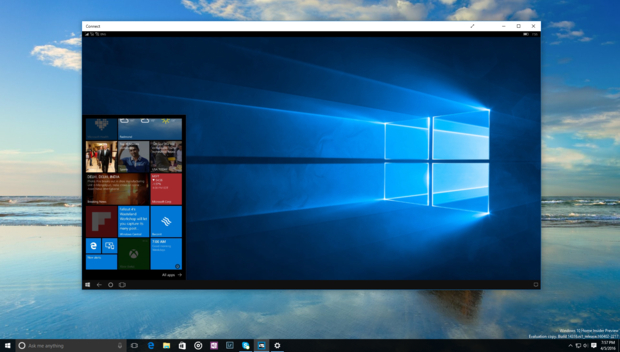 I saw the headline and thought, “oh, so that’s back again!” The ‘that’ referred to in the headline being DaaS, or Desktop-as-a-Service. DaaS has been around for years and it’s time has always been coming. I’m not saying that it’s time isn’t coming but it’s certainly been a long time coming.
I saw the headline and thought, “oh, so that’s back again!” The ‘that’ referred to in the headline being DaaS, or Desktop-as-a-Service. DaaS has been around for years and it’s time has always been coming. I’m not saying that it’s time isn’t coming but it’s certainly been a long time coming.
Anyway, the latest story was more interesting than many other DaaS-related items because it concerned Microsoft which has its Windows operating system installed on over 80% of the world’s desktop PCs. According to reports, Microsoft is planning to introduce a service called Microsoft Managed Desktop under which the software giant will provision and patch PCs for customers automatically.
In the article, Steven J Vaughan-Nichols states: “Microsoft Managed Desktop is the first move to replacing ‘your’ desktop with a rented desktop. By 2021, it is expected that Managed Desktop will be to traditional Windows what Office 365 is to Office today: the wave of the future.”
He sees this as something of a shift back to the centralised control model of the past which the PC ‘revolution’ supposedly liberated users from by delivering computing power to the desktop and making them less dependent on mainframes and Unix boxes.
But should we be surprised if this does happen? As Roger Daltrey of The Who sang all too presciently back in 1971 in the context of another revolution: “Meet the new boss, same as the old boss.”
The big question is: ‘what does this mean for channel partners?’ We’ve been through this already with Office 365 where, despite all the gloomy predictions, channel partners have managed to retain a role in the process. Unless the service is confined to the customers that Microsoft handles direct, I expect the same to happen with Microsoft Managed Desktop.
Channel partners tend to have a barnacle-like grip on their customers. To be fair, that’s often because that’s what the customers want themselves. This is why, despite the temptation to greet particular announcements with claims that it will spell ruin for the channel, things often turn out to be far less damaging than you might expect. Not always, admittedly, but more often than you’d think.
Channel partners have faced a number of existential threats over the years but the response, to paraphrase another well-known song, has always been the same. No matter how many people might think the channel will crumble or lay down and die in the face of these challenges, the reply from most partners is always the same: “We will survive.”







Subscribers 0
Fans 0
Followers 0
Followers